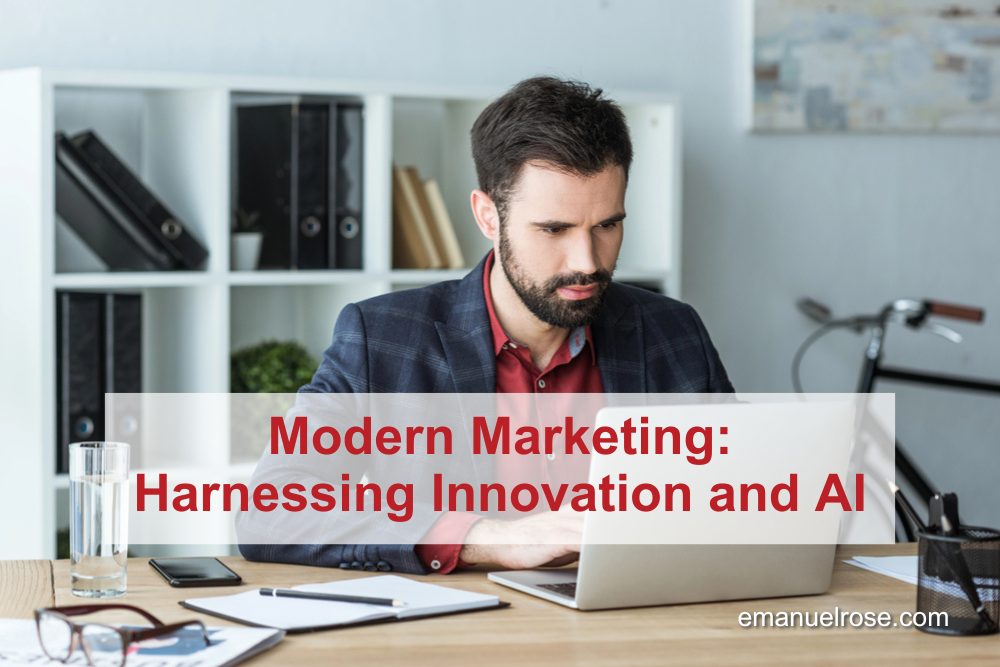The Evolution of Digital Marketing
Our modern age has brought unprecedented shifts in how businesses approach marketing. Veteran experts in the field have witnessed firsthand the dramatic changes from the early heydays of digital platforms. Take Facebook, for instance, which was a novel concept when digital marketing was burgeoning. The landscape has evolved substantially since then, shifting from heavy content writing and intricate graphic design to more streamlined and accessible tools.
Initially, marketing was intimately tied to graphic design skills, with Adobe Photoshop and Illustrator being the go-to software. Today, platforms like Canva have democratized creative tasks, making it simple for anyone to produce professional high-quality marketing content swiftly. This accessibility allows marketers to achieve more with fewer resources, breaking the barriers to entry that once existed.
Current Marketing Tools and Technology
The modern marketing toolkit is comprehensive and diverse. Among the most highly regarded tools is Canva, which is known for its seamless interface and user-friendly design capabilities. Canva’s versatility is essential, especially for businesses with multiple locations, each demanding its own branding. It empowers teams to create and personalize marketing materials while maintaining brand consistency quickly.
While Canva leads in convenience, Adobe’s suite of products remains indispensable for more intricate design projects. Despite the rise of new platforms, Adobe continues to be preferred for tasks requiring sophisticated graphic design.

Another essential aspect of today’s marketing is social media. Platforms like Instagram are particularly effective for sectors such as health and fitness, offering a visually engaging medium for audience interaction. Additionally, leveraging AI tools like ChatGPT alongside traditional platforms like WordPress for website management further streamlines marketing operations.
MailChimp, a trusted platform for email campaigns, continues to innovate, maintaining user-friendly efficiencies that have kept it relevant throughout the years.
Integrated Campaigns: The GRIT Program Case Study
The launch of the GRIT program is a good illustration of a successful integrated marketing campaign. Designed to support youth athletic performance, this program targeted a wide audience, from active athletes to children needing physical activity and confidence-building.
The campaign’s most effective outreach method was Facebook ads targeted at parents with messages like, “Does your kid need somewhere to go and be active? Do they want to be led by a great coach?” These ads were supported by email teaser campaigns directing recipients to a dedicated sign-up page on the organization’s website.
Additionally, ConvertCloud managed leads generated from these ads, ensuring a smooth transition from initial interest to final enrollment. Combining a strong social media presence, particularly Instagram reels, with school visitations helped maximize engagement and fill the program’s classes. This blend of online and real-world strategies ensured the campaign’s success.
AI and Automation: Boosting Efficiency
AI and automation significantly transform marketing, making it possible to manage complex campaigns efficiently. Tools like ConvertCloud enable seamless tracking and organization of various advertising efforts, crucial for businesses needing precise oversight of lead sources and campaign effectiveness.

Businesses can ensure streamlined management of multifaceted campaigns by integrating these tools across platforms such as Facebook and MailChimp.
One notable advantage of AI is its ability to handle content generation, freeing marketers to concentrate on strategic tasks. For instance, AI can manage quick and effective responses to urgent issues or generate promotional content, greatly enhancing productivity and responsiveness.
Balancing AI and the Personal Touch
Despite AI’s many benefits, a commonly discussed limitation is its inability to replicate the personal touch needed in localized marketing fully. Personalized interactions remain essential, particularly in unique communities where tailored communication is critical. While AI excels in generating content rapidly, the final output often requires human refinement to align perfectly with the brand’s voice and local nuances.
AI tools also enable utilizing existing branded content efficiently. By drawing from pre-existing materials like previously written books or articles, AI can generate new marketing content that maintains brand consistency and relevance.
Future Prospects: AI's Influence on Small Business Marketing

Looking to the future, AI and automation will continue to elevate small business marketing by enhancing operational efficiency. Rapid content generation and streamlined communication will allow businesses to handle day-to-day tasks effectively, freeing up resources for larger strategic projects.
As AI technology advances, it will likely offer even more personalized capabilities. Nevertheless, the human touch will remain irreplaceable. The creativity and deep understanding humans bring to marketing ensure that AI serves as a tool to augment rather than replace human ingenuity.
Technological advancements are reshaping the marketing landscape, presenting both opportunities and challenges. Modern marketers must navigate a complex ecosystem of tools that balance efficiency through automation with the necessary personalization that defines truly effective marketing.

